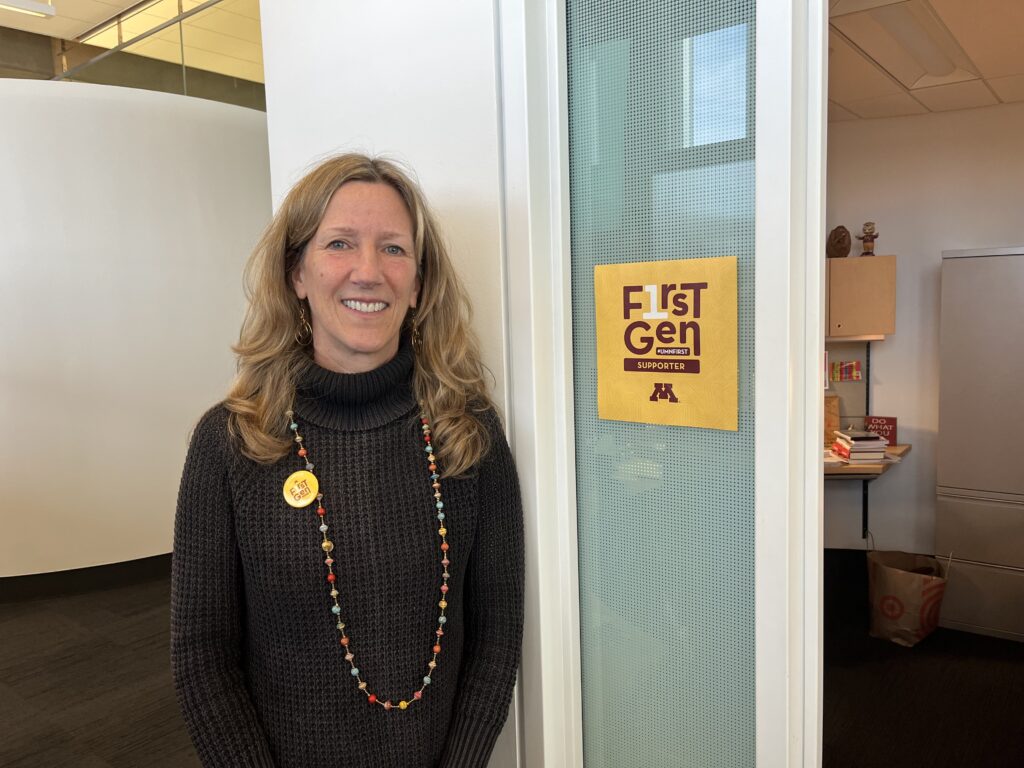UMN’s “First Gen Proud” campaign hopes to expand efforts beyond First Gen Week
The campaign has raised visibility of the first-gen community on campus, but more is needed, university officials and students say.

“First Gen Proud” mugs sit on display at the University of Minnesota Bookstore in Coffman Memorial Union in Minneapolis, Minn., on Tuesday, Feb. 20, 2024. Along with mugs, the First Gen Proud campaign has released hoodies, hats, pins and stickers as a part of their line of merchandise.
By Elijah Awada
Jose Vazquez, a first-gen undergraduate student at the University of Minnesota, generally appreciates the events and resources the university offers to welcome first-gen students, especially during First Gen Week.
“They spend a considerable amount of money to conduct these events and to do all these things they are doing,” Vazquez said.
But overall, Vazquez said he’d like to see that support of first-gen students extend beyond that one week in November .
“I have the same critique for First Gen Week that I have for things like Hispanic Heritage month, right? Why is it only a week?” Vazquez said. “It should be First Gen Week every week, right?”
University administrators involved in the “First Gen Proud” campaign say that is their goal: making every week feel like First Gen Week.
“That’s hopefully what we can do with more resources,” said LeeAnn Melin, associate vice provost for student success in the Office of Undergraduate Education.
The “First Gen Proud” campaign is a relatively new initiative. Prior to the campaign, which started in 2018, there were little to none targeted support services for first-gen students, aside from the President’s Emerging Scholars Program, according to university administrators. The campaign has produced “First Gen Proud” graphics, merchandise and other “assets” for first-gen students to sport. Beyond the logo, those behind the campaign coordinate the events and activities that make up the university’s annual First Gen Week.
The inaugural first-gen celebration began as a single-day event and extended to a week in the years following. It was sparked by a call-out from the Center for First-Generation Student Success, based in Washington D.C., for universities across the nation to celebrate their first-gen students each year on Nov. 8, the anniversary of the 1965 Higher Education Act.
The University of Minnesota’s first-gen celebration is overseen by Melin and other staff members in the Office of Undergraduate Education. It includes workshops, panels and social events put on by various offices and academic departments at the university, as well as the annual first-gen group photo-op in front of Coffman Memorial Union.

Dr. LeeAnn Melin, Associate Vice Provost for Student Success at the University of Minnesota, stands next to a “First Gen Supporter” poster on her office window in Bruininks Hall in Minneapolis, Minn., on Wednesday, Feb. 21, 2024. Melin has led the efforts to coordinate the “First Gen Proud” campaign since its inception in 2018.
The focus during the first year of First Gen Week was visibility and displaying the diverse stories of first-gen students and faculty, according to Melin.
“The president of the university at the time was first-gen, President Kaler. So, we got him to submit his story. We got alumni that were like, ‘I want to tell my story.’ We had a huge outpouring from grad students that wanted to be out there telling their story,” Melin said.
Since then, the week has taken on events that go beyond visibility, engaging students in conversations and preparing them for their careers, according to Melin. First-gen students have the opportunity to get professional headshots and attend panels that feature first-gen alumni.
The “First Gen Proud” campaign and other organizations that support first-gen students in higher education are part of a large-scale shift in the social connotation embedded in the term “first-gen,” said Rashné Jehangir, director of the University of Minnesota’s First-Gen Institute.
“I would say, in the last five to eight years, being first-gen has become cool,” Jehangir said. “10 years ago, 15 years ago, people didn’t always want to say that because the assumption was, ‘you don’t know stuff.’”
Publicly highlighting the university’s first-gen students in a positive light and bringing them together through First Gen Week events is a good starting point in reshaping the institutional narratives surrounding the community, Jehangir said.
“I do think that visibility is a really important first step and I think that they’ve done a nice job of coordinating that,” Jehangir said
But now that the community is more visible, Jehangir emphasized the need to acknowledge the intersectionality of first-gen students when creating support services and events meant to serve them.
“I think the future of doing first-gen work on campuses is not to just use it generically but to really intersect it with rich data collection so our programs are tailored to our first-gen students,” Jehangir said.
Vazquez said he thinks the university could be doing more in its efforts to welcome first-gen students of color, who make up 63.4% of the first-gen community at the University of Minnesota, according to the First-Gen Institute.
“A majority of us are people of color, and it’s inevitable that it’s going to be hard within the Midwest,” Vazquez said.
Vazquez said he wants to see first-gen events that are more tailored to specific cultural groups that exist within the first-gen community.
“A lot of people lose their language coming through the university because they don’t get to practice as much, and they kind of lose that part of themselves being in a predominantly white institution,” Vazquez said. “I think having events that are held in Spanish, or in Japanese, or whatever, would make people feel connected to the small community of color that is present here.”
Hosting culturally specific first-gen events is a balancing act, though, according to Melin. On the one hand, the university wants to create spaces of belonging where students can relate to others who share an aspect of their identity, but on the other hand, they don’t want to exclude certain first-gen students from attending first-gen events.
The need for culturally specific event hosting is more adequately met, according to Melin, through the help of student groups and university programs created specifically for certain identity groups, such as Mi Gente, Multicultural Center for Academic Excellence and the Rev. Dr. Martin Luther King, Jr. Program.
Only about one-third of incoming freshmen at the university who are first-gen are also associated with a broader program, such as a student group, a student services program, a club or sports team, etc., on campus, though, according to Melin.
In an effort to increase engagement with incoming first-gen students on campus, Melin and Jehangir are partnering to create a first-gen student center in Appleby Hall, which is set to open before the end of the semester. Funding has been secured to employ three full-time staff members at the center.
The center will offer a space for first-gen students to gather outside of First Gen Week events and connect with student groups and university programs that make them feel more welcome on campus.
“This center is being created to be a little bit more thoughtful about the students who aren’t currently served in some way,” Melin said.

